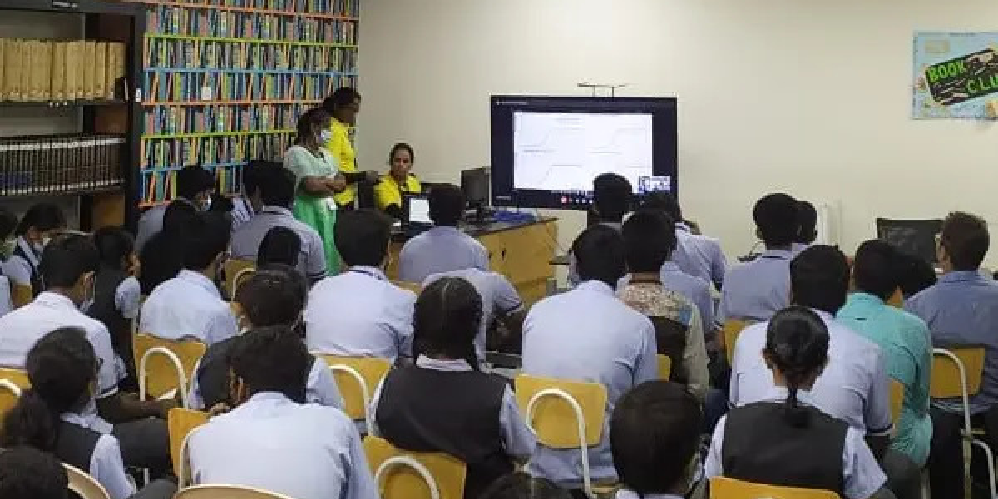Success in life is often associated with academic achievements, and for many parents, competitive exams are seen as the ultimate gateway to a bright future. In India, exams like JEE, NEET, UPSC, and CA are regarded as prestigious, leading to well-established careers in engineering, medicine, civil services, and finance.
However, what happens when a child is not interested in these fields? What if their strengths and passions lie elsewhere? Many students feel trapped in a system that pushes them toward competitive exams, not because they choose to, but because they are expected to.
This blog explores why competitive exams aren’t the right path for every child and how parents can support their children in finding careers that align with their true potential.
The Pressure of Competitive Exams: A Harsh Reality
For many students, preparing for competitive exams means:
- Long study hours with little time for hobbies or relaxation.
- Constant stress and anxiety about performance.
- Comparisons with peers lead to self-doubt and pressure.
- Fear of failure makes them feel that not clearing an exam equals failure in life.
While some students thrive under this structure, many struggle. The truth is, not every child is wired for competitive exams, and that’s perfectly okay.
The One-Size-Fits-All Mindset
For decades, academic success has been defined by cracking competitive exams. This mindset has led to:
- Ignoring Individual Interests – Many students are naturally gifted in areas like art, music, sports, entrepreneurship, design, writing, or social work. Yet, these talents often take a backseat because they don’t fit into the "traditional" success model.
- Emotional and Mental Strain – Studies show that academic pressure contributes significantly to anxiety and depression among students. The fear of not meeting expectations can affect their emotional well-being.
- Lack of Career Awareness – Most students are only exposed to careers in engineering, medicine, and government services. Many don’t even know that unconventional careers in gaming, digital marketing, filmmaking, culinary arts, or environmental sciences can be equally rewarding.
- Loss of Creativity – When a child is forced into a path that doesn’t match their strengths, they may lose confidence in their abilities. This stifles creativity and innovation, two of the most valuable skills in today’s world.
Every Child is Different: Understanding Multiple Intelligences
Dr. Howard Gardner’s Theory of Multiple Intelligences explains that intelligence is not just about scoring high in exams. Children excel in different areas, such as:
- Linguistic Intelligence: Writers, speakers, journalists, teachers.
- Visual-Spatial Intelligence: Designers, architects, photographers, artists.
- Musical Intelligence: Singers, composers, instrumentalists.
- Bodily-Kinesthetic Intelligence: Athletes, dancers, actors.
- Interpersonal Intelligence: Leaders, psychologists, HR professionals.
- Logical-Mathematical Intelligence: Scientists, engineers, accountants.
This means that while some children excel in academics, others may be better at problem-solving, creativity, leadership, or hands-on skills.
As parents, recognising and nurturing these unique abilities is key to helping children build a successful and fulfilling future.
How Can Parents Approach This Topic with Their Child?
If your child shows discomfort or lack of interest in competitive exams, here’s how you can help:
1. Start an Open Conversation
Instead of imposing expectations, ask your child:
- What subjects or activities do you enjoy the most?
- What careers inspire you?
- How do you see yourself in the future?
Understanding their thoughts can guide them toward a career that matches their interests.
2. Identify Their Strengths
Observe what your child naturally excels at. Are they good at problem-solving, public speaking, or storytelling? Do they enjoy working with their hands or coming up with new ideas?
Matching their strengths to career options can help them discover their path.
3. Explore Alternative Career Paths
Help them explore fields beyond traditional professions, such as:
- Entrepreneurship: Running a business or startup.
- Technology & Innovation: AI, cybersecurity, game development.
- Creative Arts: Graphic design, filmmaking, animation.
- Social Impact Careers: Environmental science, mental health counselling.
- Sports & Fitness: Professional sports, coaching, physiotherapy.
- Content Creation: YouTube, blogging, podcasting.
The world is changing, and so are career opportunities.
4. Encourage Skill Development
Regardless of their career choice, certain skills will always be valuable:
- Critical thinking & problem-solving
- Communication & presentation skills
- Collaboration & teamwork
- Digital literacy
Encourage your child to take up online courses, internships, and real-world projects to enhance these skills.
5. Support Their Journey
If your child wants to pursue a different path, be their biggest supporter. Guide them toward mentors, career counselling, or professional courses.
Success is not about following the crowd but about excelling in what they love.
Breaking the Stigma: Success Without Competitive Exams
Many successful people did not take the traditional academic route, yet they excelled in their fields:
- Sachin Tendulkar – Chose cricket over academics and became a legend.
- Ratan Tata – A visionary leader who pursued industrial design over conventional business paths.
- A.R. Rahman – A global music icon who followed his passion for music.
- Steve Jobs – Dropped out of college but transformed the tech industry.
These examples prove that success is not defined by competitive exams but by passion, perseverance, and innovation.
Final Thoughts: Redefining Success for Your Child
It’s time to break the cycle. Not every child is meant to be a doctor, engineer, or civil servant and that’s okay. Every child has unique potential, and success comes in many forms. At Shraddha Children’s Academy, we believe in nurturing every child’s potential, helping them explore diverse opportunities and make informed career choices based on their passions, not societal expectations.
Through exposure to diverse activities like dance, theatre, music, entrepreneurship, coding, and sports, we enable them to explore their talents, build confidence, and develop essential life skills. Education should be about growth, passion, and self-discovery, not just competition.
As parents, your role is to understand and respect their aspirations. Encourage them to dream big, take risks, and embrace their individuality. The goal is not just to build a career but to build a life that they find meaningful and fulfilling.



